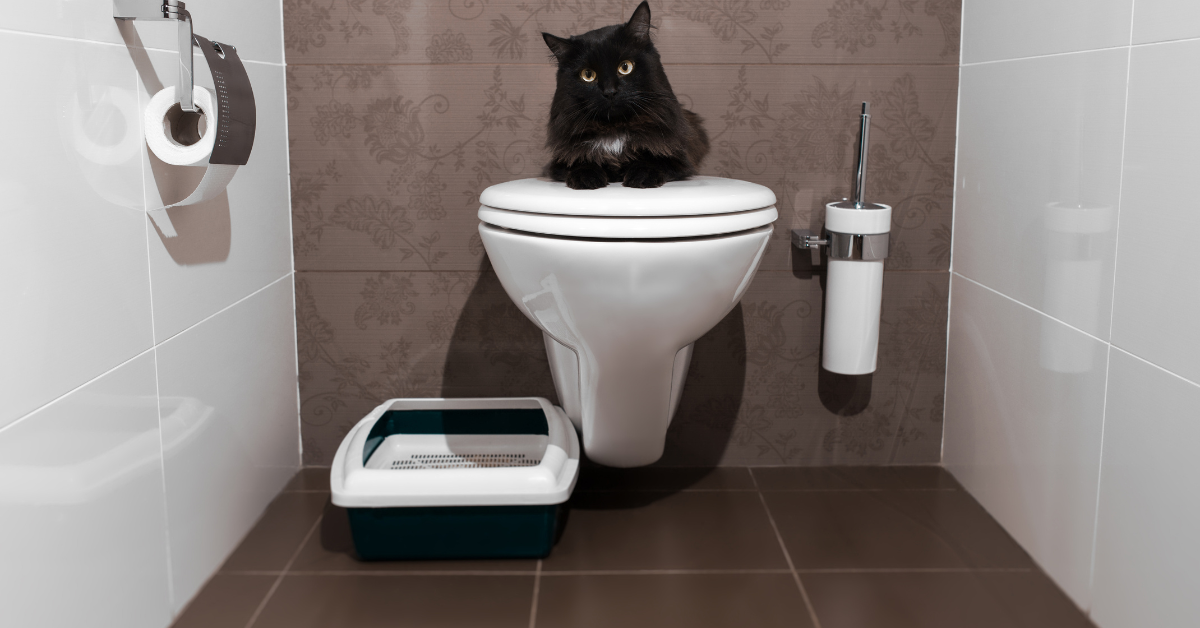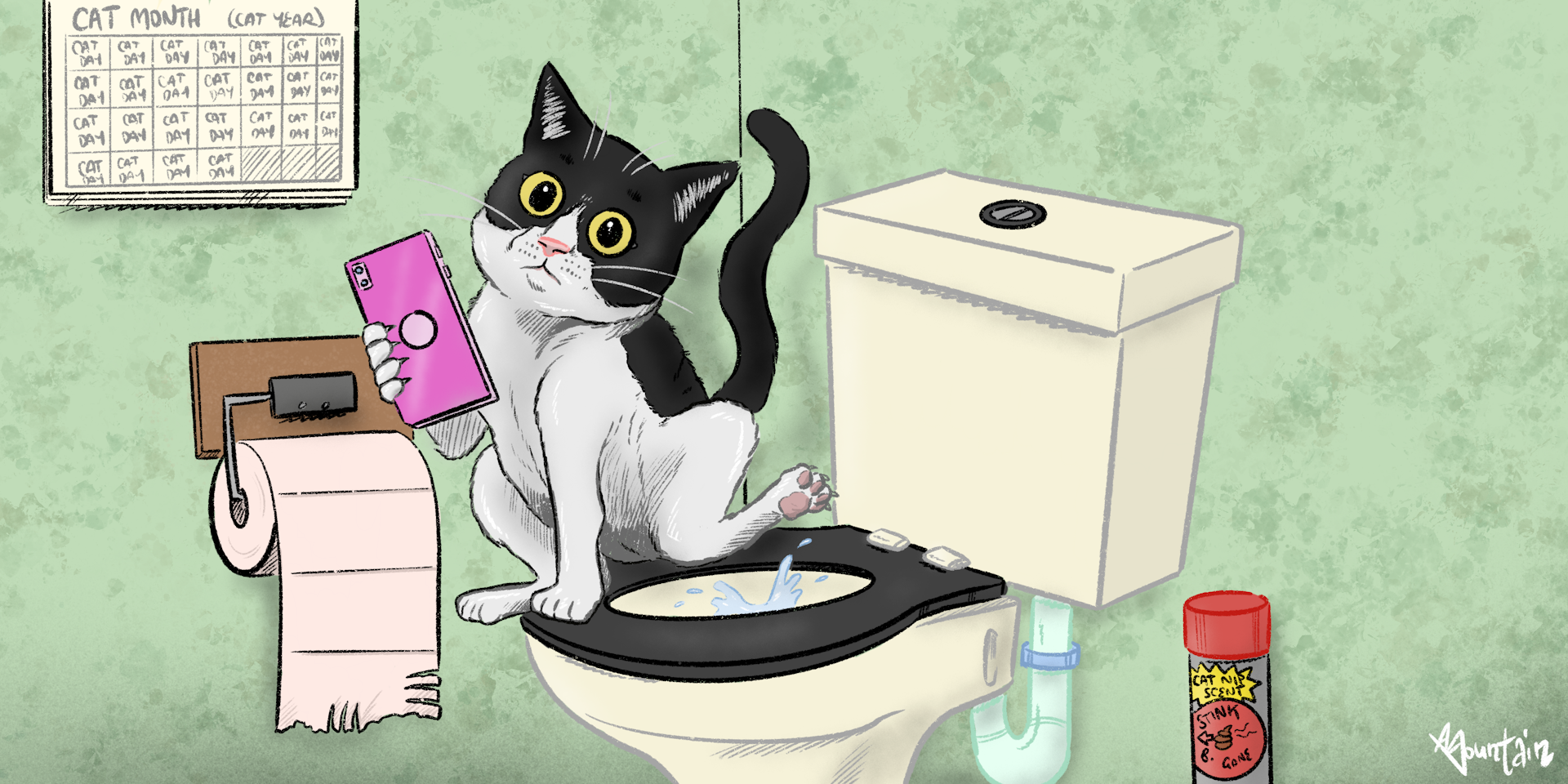Potential Risks of Flushing Cat Poop Down Your Toilet - Tips for Safer Disposal
Potential Risks of Flushing Cat Poop Down Your Toilet - Tips for Safer Disposal
Blog Article
The article listed below on the subject of Can You Flush Cat Poo or Litter Down the Toilet? is especially motivating. Don't miss it.

Introduction
As pet cat proprietors, it's important to be mindful of how we deal with our feline buddies' waste. While it may appear convenient to purge cat poop down the bathroom, this practice can have damaging effects for both the atmosphere and human wellness.
Alternatives to Flushing
Thankfully, there are much safer and extra responsible methods to take care of cat poop. Think about the adhering to choices:
1. Scoop and Dispose in Trash
The most common technique of taking care of pet cat poop is to scoop it into a biodegradable bag and throw it in the trash. Be sure to use a devoted litter scoop and deal with the waste quickly.
2. Use Biodegradable Litter
Choose biodegradable cat clutter made from products such as corn or wheat. These trashes are environmentally friendly and can be safely disposed of in the trash.
3. Hide in the Yard
If you have a yard, consider hiding cat waste in a designated area away from vegetable yards and water resources. Be sure to dig deep sufficient to avoid contamination of groundwater.
4. Set Up a Pet Waste Disposal System
Buy an animal garbage disposal system especially created for cat waste. These systems use enzymes to break down the waste, decreasing smell and ecological impact.
Health and wellness Risks
In addition to environmental concerns, purging feline waste can additionally position health and wellness threats to people. Pet cat feces may consist of Toxoplasma gondii, a bloodsucker that can cause toxoplasmosis-- a possibly extreme illness, especially for expectant women and individuals with weakened immune systems.
Ecological Impact
Purging pet cat poop presents damaging microorganisms and bloodsuckers right into the water, posing a significant risk to aquatic ecosystems. These contaminants can negatively impact aquatic life and concession water high quality.
Final thought
Accountable animal ownership expands beyond providing food and sanctuary-- it additionally includes proper waste management. By avoiding flushing pet cat poop down the bathroom and opting for different disposal techniques, we can minimize our ecological footprint and secure human health.
Why You Should Never Flush Cat Poop Down the Toilet
A rose by any other name might smell as sweet, but not all poop is created equal. Toilets, and our sewage systems, are designed for human excrement, not animal waste. It might seem like it couldn’t hurt to toss cat feces into the loo, but it’s not a good idea to flush cat poop in the toilet.
First and foremost, assuming your cat uses a litter box, any waste is going to have litter on it. And even the smallest amount of litter can wreak havoc on plumbing.
Over time, small amounts build up, filling up your septic system. Most litter sold today is clumping; it is made from a type of clay that hardens when it gets wet. Ever tried to scrape old clumps from the bottom of a litter box? You know just how cement-hard it can get!
Now imagine just a small clump of that stuck in your pipes. A simple de-clogger like Drano isn’t going to cut it. And that means it’s going to cost you big time to fix it.
Parasitic Contamination
Believe it or not, your healthy kitty may be harboring a nasty parasite. Only cats excrete Toxoplasma in their feces. Yet it rarely causes serious health issues in the cats that are infected. Most people will be fine too if infected. Only pregnant women and people with compromised immune systems are at risk. (If you’ve ever heard how women who are expecting are excused from litter cleaning duty, Toxoplasma is why.)
But other animals may have a problem if infected with the parasite. And human water treatment systems aren’t designed to handle it. As a result, the systems don’t remove the parasite before discharging wastewater into local waterways. Fish, shellfish, and other marine life — otters in particular — are susceptible to toxoplasma. If exposed, most will end up with brain damage and many will die.
Depending on the species of fish, they may end up on someone’s fish hook and, ultimately on someone’s dinner plate. If that someone has a chronic illness, they’re at risk.
Skip the Toilet Training
We know there are folks out there who like to toilet train their cats. And we give them props, it takes a lot of work. But thanks to the toxoplasma, it’s not a good idea.

I'm just very intrigued by How to Dispose of Cat Poop and Litter Without Plastic Bags and I hope you enjoyed reading the entire blog posting. If you liked our blog post plz make sure you remember to share it. Thanks a bunch for your time. Please come visit our site back soon.
Schedule Report this page